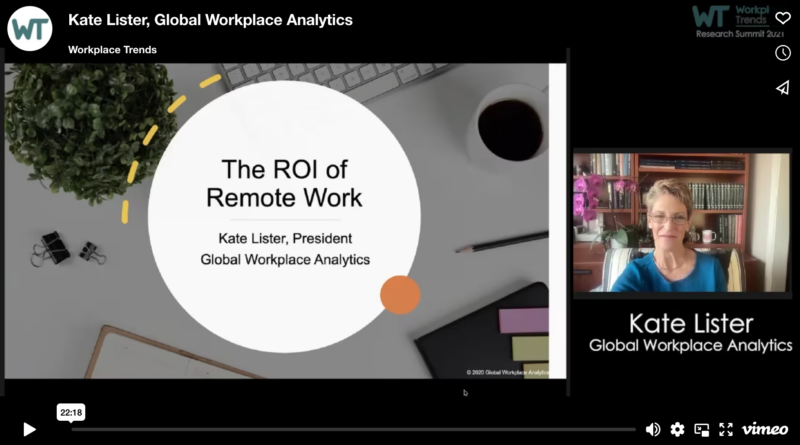Subscribers to our mailing list receive an email every Monday with a link to view a different session from a past Workplace Trends conference. If you’d like to join them subscribe to our mailing list here or at the bottom of this page and we’ll send you a link to view it by return.
The Business Case for Remote Work for Employers, Employees, the Environment, and Society
– Kate Lister, Global Workplace Analytics
As president of Global Workplace Analytics (GWA), Kate has been helping clients focus on shaping workplace and workforce strategies to improve people, planet, and profit outcomes for over 15 years.
GWA’s work is informed by a proprietary digital library of over 5,000 research reports, case studies, and other content related to the technologies, trends, and scientific understandings that are transforming workforce and workplace strategies around the globe.
Kate is a leading research-based authority on the future of work. She was one of only three witnesses invited to testify before Congress on the future of telework in government post-COVID. She is one of the most widely cited experts on the topic and is a sought-after source for publication including the New York Times, Wall Street Journal, Washington Post, and many others.
Some of the world’s industry’s most respected influencers partner with GWA to advance thought leadership on the future of work.
This recording is from our 2021 Workplace Trends Research Summit, which was held online due to the Covid pandemic.
Kate Lister, Global Workplace Analytics



